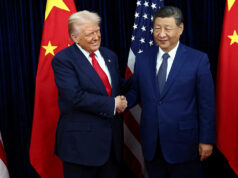Bank loans to small firms to count in computing reserves
THE central bank announced a relief package for small businesses in the form of incentives for banks to to the sector, which is expected to have been hard hit by the coronavirus disease 2019 (COVID-19) crisis.
“The Monetary Board (MB) approved a package of measures to further reduce the financial burden on loans to micro-, small-, and medium-scale enterprises (MSMEs). Loans granted to MSMEs shall be counted as part of banks’ compliance with reserve requirements,” Bangko Sentral ng Pilipinas Governor Benjamin E. Diokno said in a statement issued late Thursday.
The decision was approved by the MB alongside another 50 basis-point (bp) rate cut which took effect Friday. Mr. Diokno said that the guidelines related to the small-business lending measure will be issued by the BSP.
ING Bank-NV Manila Senior Economist Nicholas Antonio T. Mapa said the latest package from the BSP mirrors actions taken to keep small businesses afloat elsewhere.
“Although a different model used by other countries such as the US and Indonesia that have specific funds set up primarily for SMEs, it follows the current trend of BSP flexing while investors look to the fiscal side of the fence to match,” Mr. Mapa said in an email.
He added that the initiative may prove to be a ”de facto” reduction in the reserve requirement ratio (RRR), which will free up funds for banks to inject into the economy.
The latest RRR reduction took effect April 3. The reserve requirement for big banks was reduced by 200 basis points (bps) to 12%. The central bank also reduced the minimum liquidity ratio for stand-alone thrift and rural banks by 400 basis points to 16% until year’s end to support to smaller lenders as the pandemic threatens to disrupt the financial sector.
However, Mr. Mapa said that previous trends show that timing determines the effectivity of such liquidity boosts.
“(A)s what we’ve seen from past RR reductions, credit conditions and the general state of the economy matter in the timing of such moves and throwing money at the problem is not as effective unless channeled effectively,” Mr. Mapa said.
Mr. Diokno has said that monetary policy works with a lag, a consideration that was weighed in recent actions.
UnionBank of the Philippines, Inc. Chief Economist Ruben Carlo O. Asuncion said that BSP’s move is a form of aid for embattled firms during the pandemic.
“Linking this to reserve requirement compliance may further encourage banks to extend the ‘bayanihan’ help to the major employers of the economy. This is a direct boost to the most vulnerable businesses impacted by the COVID-19 pandemic,” he said in an email.
Mr. Asuncion said that guidelines to be imposed by the BSP need to be “clear and targeted” to ensure maximum impact for the intended beneficiaries.
The latest rate cut reduced overnight reverse repurchase, lending and deposit rates to 2.75%, 3.25%, and 2.25% effective Friday.
“These measures should thus mitigate the adverse impact of the outbreak on the economy by reinforcing the health and fiscal measures already being rolled out by the National Government. The monetary initiatives will also quicken economic recovery as the pandemic fades,” the BSP said in a statement. — Luz Wendy T. Noble



